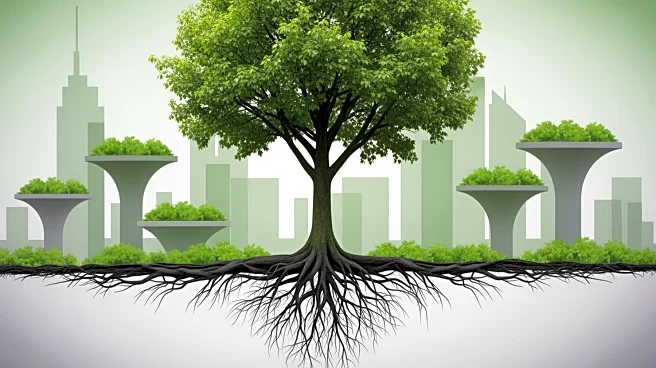What's Happening?
The article discusses the importance of managing urban forests beyond merely planting trees. It highlights the need for a comprehensive strategy that ensures trees reach maturity and provide long-term
benefits. The piece references a post by Treeconomics, which emphasizes that many local authorities have recognized the 'climate emergency' and initiated ambitious tree planting programs. However, without a long-term plan, these efforts may not yield the desired outcomes. The article stresses the importance of having a tree strategy or master plan to guide urban forest development sustainably.
Why It's Important?
The significance of this issue lies in the potential waste of resources and missed opportunities for urban areas to benefit from mature trees. Trees offer numerous advantages, including improved air quality, enhanced biodiversity, and climate regulation. Without proper management, newly planted trees may not survive to maturity, leading to a loss of these benefits. The article suggests that poor governance and lack of long-term planning are major threats to urban forests, rather than climate change or urbanization. This highlights the need for dedicated funding, strategic planning, and community involvement to ensure the success of urban forestry initiatives.
What's Next?
The article suggests several steps for improving urban forest management, including developing a clear vision, setting realistic goals, and securing sustainable funding. It also emphasizes the importance of collaboration across departments and involving communities in the planning process. Regular audits and progress checks are recommended to ensure the success of tree planting efforts. By implementing these strategies, urban areas can create a stable environment for trees, ensuring they provide long-term benefits despite budgetary and political changes.
Beyond the Headlines
The article touches on the ethical and governance aspects of urban forest management. It suggests that without a long-term strategy, tree planting efforts may become mere political gestures rather than meaningful environmental actions. The need for a comprehensive approach that considers the long-term health and benefits of urban forests is crucial for addressing the climate emergency and ensuring sustainable urban development.









